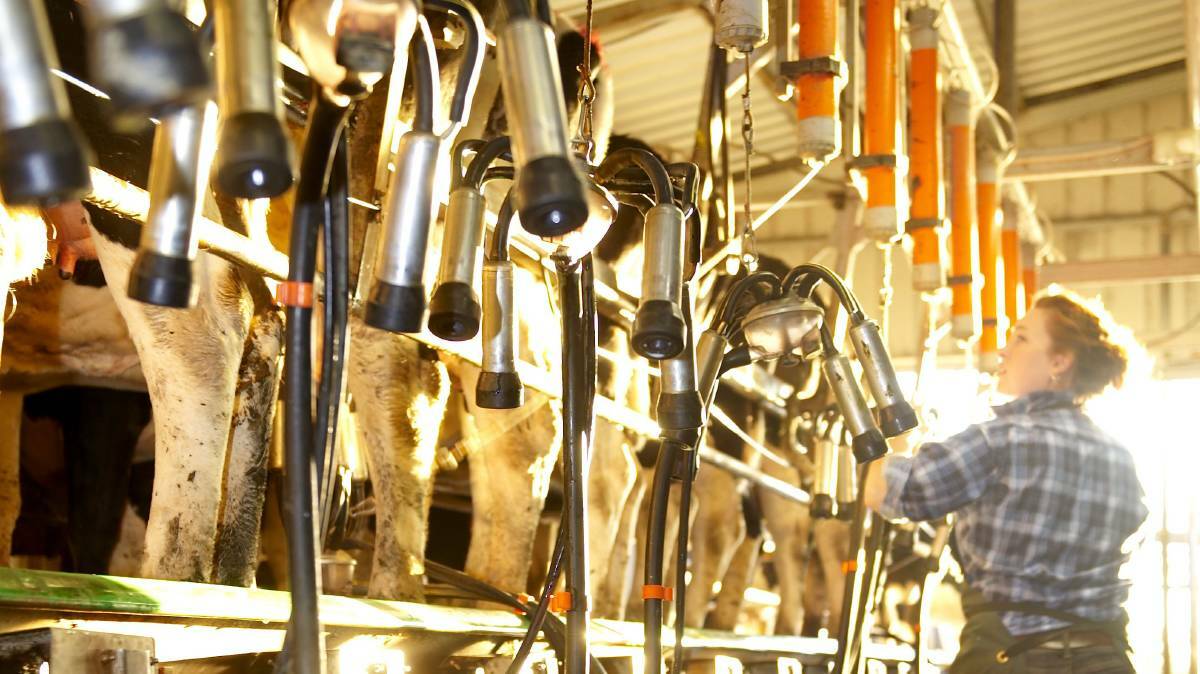
Australia risks trading away hundreds of millions of dollars in agricultural earnings if it doesn't negotiate significant concessions from the European Union.
Subscribe now for unlimited access to all our agricultural news
across the nation
or signup to continue reading
That's according to industry groups Australian Dairy Farmers and the National Farmers' Federation, which warned Trade Minister Simon Birmingham the EU will have to reduce its onerous tariffs and import barriers to make a free trade agreement (FTA).
"There would be no point in doing the deal for Australian farmers if we can't see a realistic and positive outcome from this FTA," NFF president Tony Mahar said.
"Not only are we told new access for 'sensitive' agricultural products will be difficult, and that we're not going to get any new access for sugar, dairy, small goods and other products, we're now expected to give up the use of common food names and the sales that go with them?"
Mr Birmingham announced today the EU's list of protected names for 172 foods and 236 spirits (also known as geographical indicators) which would be banned from use in Australia under an FTA .
The most controversial requests are for dairy products. The EU wants to ban calling Australian produced cheeses Feta, Gruyere, Gorgonzola, or Taleggio has the dairy industry up in arms.
Mr Birmingham said the list of protected names was a starting point in negotiations and if the deal wasn't good for Australia "then there'll be no deal".
"Of course what we're negotiating is something that is going to encompass every possible area of Australian agriculture, Australian products, Australian services. So it's a complex deal, it's a big deal, but we're going to stand up for Australian industry to make sure it's a good deal too," Mr Birmingham said.
The EU is already Australia's second largest trading partner and its market, boasting more than 500 million consumers, offers tempting growth opportunities.
Related reading
Australia is on the wrong end of a two-to-one ag trade imbalance with the EU and there are fears gains in financial exports and service industries will come at the expense of agriculture.
Australian Dairy Farmers chief executive David Inall said an FTA with the EU industry was not in the interests of his industry, which has been hit by drought and skyrocketing feed and water costs as well as long-term retail price pressures.
"We don't see a lot of upside. Even if there is a tariff reduction it would not be of great advantage to the Australian industry," Mr Inall said.
"Right through the supply chain and in manufacturers there are deep concerns around the implications of a deal.
"The EU is not expected to be a large export market for dairy and we already have our own domestic market and Asia as a large export market."
Mr Inall said the EU's protected names could impact $650 million of aggregate dairy sales, and incur up to $90m in direct costs to manufacturers from lost sales, new packaging and marketing requirements.
Agriculture is a politically sensitive issue for most EU nations and farm production is heavily subsidised and industry is protected from import competition.
EU negotiators have already warned Australian farm representatives they're unlikely to offer substantive concessions on Australia's primary export opportunities in beef, sheepmeat, rice, sugar or dairy.


